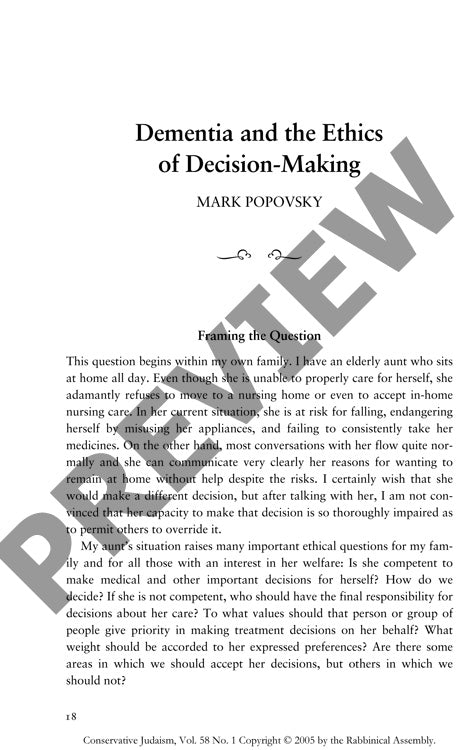Dementia and the Ethics of Decision Maki
Couldn't load pickup availability
When should caregivers accept or override the medical decisions of elderly individuals with dementia? This fundamental tension between respecting autonomy and ensuring beneficence challenges families, healthcare providers, and ethicists alike. Through comparative analysis of contemporary medical ethics literature and classical Jewish legal sources, a framework emerges for evaluating six critical components of decision-making capacity: understanding relevant information, appreciating circumstances, rational information processing, choice communication, intentionality, and voluntariness. Talmudic discussions of mental competence (shoteh) and interpretations by medieval authorities like Maimonides reveal a spectrum of approaches, from restrictive to broad criteria for determining incompetence. The evidence supports a sliding-scale model where more consequential decisions require higher levels of decision-making capacity, maximizing autonomy while protecting vulnerable individuals. Classical Jewish tradition notably favors maintaining a person's decision-making status and community integration, warning against hasty declarations of incompetence. Effective assessment demands optimal environmental conditions and repeated evaluations over time. When surrogate decision-making becomes necessary, previously expressed values and beliefs should guide choices rather than current subjective assessments of well-being. This integrated approach offers practical guidance for caregivers, clergy, and medical professionals navigating the complex ethical terrain of dementia care.

More Information
-
Physical Description
-
Publication Information
Published 2005
ISBN
-
Publication Credits
Mark Popovsky

